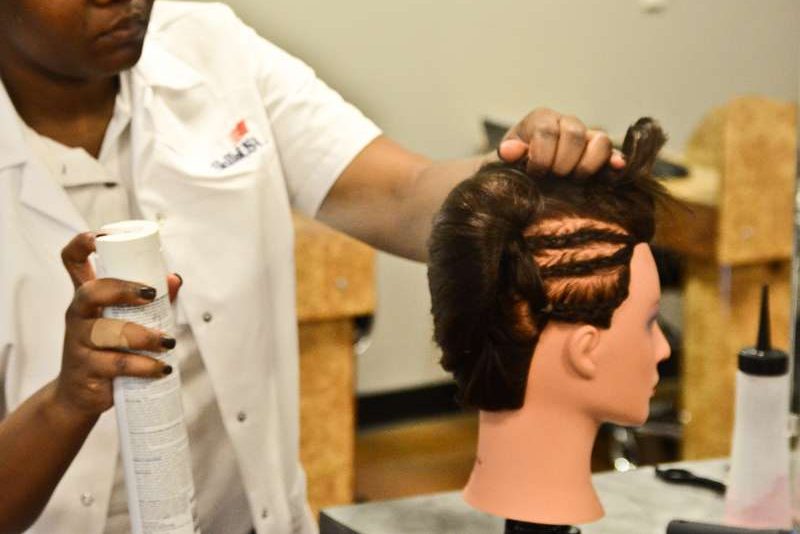If you’ve been on Instagram in the past few weeks, you might have noticed a horrible trend. Hate is becoming rampant; of course, this has always been the case. But hateful online behavior specific to our school has been off the charts recently.
Our community has seen several iterations of student-led hate pages on Instagram. A common title for these hateful accounts is “Klein Collins Confessions”. Even if one of these “confession” pages receives a flag or removal, another one will replace it within a day or two. Pages like this are a disease, and students are addicted to spreading it.
The addictive component of this kind of Instagram page is anonymity. Each “confession” page owner promises followers complete privacy for their submissions, meaning that a person can send in any kind of confession, regardless of its truth, and not see any consequences to their reputation. This way, people are way too comfortable sharing secrets, gossip, and lies.
Not only do people get a thrill from submitting morsels of gossip. The other part of the high is reading the posts. Students leave comments, repost to their stories, and send posts to their friends. It’s a vicious cycle, and for the targets of the online hate, it might feel never ending.
Anyone familiar with these depraved Instagram pages knows the sort of messages that receive attention. At the time of writing, there is not a single post on the current “Confessions” page that is clean enough to share.
So what happens when corrosive social media accounts capture the attention of students? Balance always finds a way to be restored. On Thursday, after Valentine’s Day, only hours after the most love-filled day of the year, a new kind of school-specific Instagram page popped up. This one, though, had a very different mission.
Rather than plaguing the social media landscape with nasty anonymous messages, this new page, under the username @kleincollins_compliments, set out to share faceless notes of kindness. It was a quick success, but with the shocking popularity of the hate pages, the runners of this compliments page were not sure it would turn out as successfully as it did.
“I thought I was going to get a lot of troll messages,” sophomore and original Klein Collins Compliments page runner Atlas Boutte said. “But I had a lot more people actually supporting.”
Within hours of its creation, the compliments page had gained incredible traction– so much that Boutte had to pull in extra help: senior Allison Brady, who had helped form the idea.
“There was a big hate page going around,” Brady said, describing the inspiration. “I think people were like, ‘Oh, well, this is a nice change of pace.’”
A nice change of pace it was. The new compliments page created a positive outlet for those who wanted to share anonymous messages. With dozens of these rolling in every day, students started to experience online community in a way they never had; they were welcomed by kind and funny words, rather than attacked by mean ones.
“Before [we] started running the page, we thought everybody was out to get everybody,” Boutte said. “But now, I realize people enjoy each other’s company more than I originally thought.”
“It just makes me happy to see that people really see each other in a good light,” Brady said. “I think one person sent in one where they just listed their entire friend group and how awesome each person was and why. I think it’s really sweet because someone put a lot of thought into that message.”
As great as this page may have been for our school’s online community, though, it cannot fully stamp out the flames of the hate pages. Both runners of the compliments page expressed their concerns about the rise of “confession” pages.
“The only thing we can do is just encourage people not to spread that kind of stuff,” Boutte said. “I feel like when you send an anonymous message like that [to hate pages], people are going to see that people were talking about them, and they’re not going to want to tell their friends their business anymore because they don’t know who sent that message.”
According to Boutte, the negativity on social media doesn’t always stay on the screen. In the case of our school, it has had serious, real-life consequences. The untraceability of deleted accounts doesn’t make the search for a solution any easier.
“I know a lot of gay kids that were outed because of those pages,” Boutte said. “There were a lot of physical fights that broke out because of those pages.”
The best solution for now seems to be for Brady and Boutte to continue spreading the positivity they receive in their DM inbox every day. This definitely does not happen without work, though.
“We got so many DM’s,” Brady said. “It was to the point where it almost felt like a job. That’s why I ended up stepping in in the first place.”
Arguably one of the best elements of this compliments page is the authentic feel to it. The messages are always open, and (until now) the runners have been anonymous. The goal, it seems, was to allow anyone to contribute to the page, no matter how serious or humorous their tone.
“There are a lot of people sending in jokes,” Boutte said. “I mean, it’s not something that I’m really gonna filter.”
Even with the saddening impacts of the more hateful social media pages, there is still an opportunity for students to choose a better kind of connection with their school. Here are the messages that Brady and Boutte have for anyone who has contributed to their compliments page:
“Thank you so much for sending in your compliments, because it really warms our hearts to read them, and it makes people really happy to receive them,” Brady said.
“Don’t keep this stuff on the internet,” Boutte said. “Go to the people that you have this stuff to say about, and tell them how you feel. And don’t stop at the people you know. Compliment everybody; compliment random people. And even if it’s not compliments, just do things that will spread kindness around the school.”






